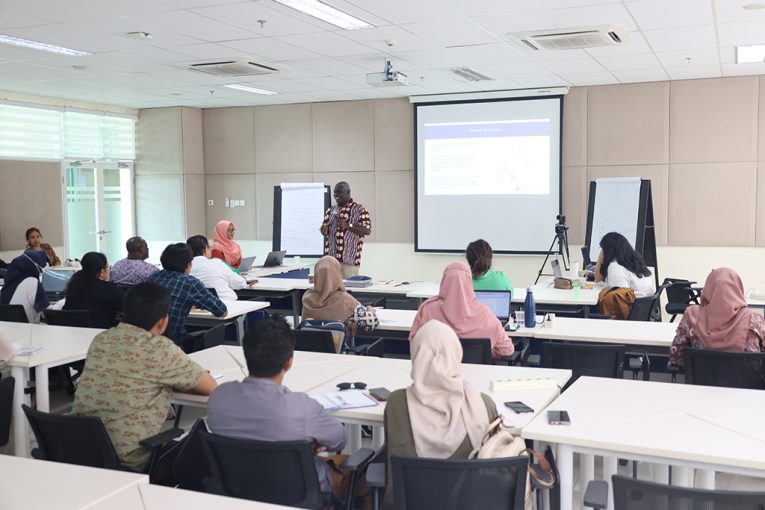
FK-KMK UGM. Special Program of Implementation Research, Faculty of Medicine, Public Health, and Nursing (FK-KMK) UGM held a Guest Lecture themed “How to Conduct an Implementation Research: Lesson Learned”. The event presented two speakers, Dr. Emmanuel Asampong from the University of Ghana and Dr. Mahnaz Vahedi from the TDR, who shared their experiences and strategies in conducting implementation research.
Dr. Emmanuel Asampong discusses his research project focused on improving the effectiveness of Long-Lasting Insecticide-Treated Net (LLIN) distribution campaigns in Ghana. This qualitative research used a participatory approach with multiple methods, including focus group discussions (FGDs), key interviews, and a baseline survey analyzed through the Community Health Advocacy Team (CHAT) framework.
Meanwhile, Dr. Mahnaz Vahedi explained the TDR program’s plan to support implementation research to improve the health of communities affected by poverty-related infectious diseases. The three main strategies highlighted were global engagement, research support, and training, all of which aim to increase research capacity and provide evidence to support effective health interventions.
This activity reflects the commitment of FK-KMK UGM in supporting the Sustainable Development Goals (SDGs), especially SDG 3 Good Health and Well-being, SDG 4 Quality Education, and SDG 17 Partnerships to Achieve Goals by continuing to build international collaborations and strengthen implementation research capacity. Thus, FK-KMK UGM contributes significantly in producing evidence-based health interventions that benefit the wider community, especially for those who are vulnerable to infectious diseases due to poverty (Reporter: Sitam/Editor: Rima).
